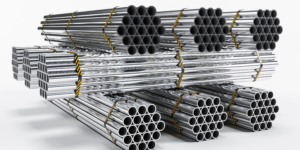Right alloy selection will determine the endurance and completeness of any metalworking undertaking. Selecting from one of the many alloys that may suit your needs is not an easy task. The next section will be devoted to some basic considerations in the selection of an ideal alloy that includes strength, corrosion resistance, and affordability.
What are the different types of alloys commonly used in projects?
Alloys play a significant role in the materials they choose for projects due to deciding whether or not such a project will be sustainable over time and its success. However, it is to take into consideration the broad variety of compositions and characteristics of alloy types normally found in projects. Options range from the durability of stainless steel to aluminum alloys, which are also very lightweight. Nevertheless, each alloy has its pros and cons to be taken into account. For instance, alloys of steel are known for great strength and longevity hence suitable to carry heavy loads. However, due to their corrosion-resistant nature and lightweight properties aluminum alloys are selected ones that have a wide application in the aircraft industry. Monadic properties of the more expensive products with such a monad typically involve strength, small density, and perfect corrosion resistance provided by titanium alloys. When selecting the optimal alloy to meet your specific project need, problems of strength and cost must be addressed along with its corrosion resistance.

How do strength and hardness play a role in alloy selection?
Strength and hardness an important considerations when selecting the appropriate alloy for your project as this determines how efficient the product will be after completion and longer its life span. The strength of an alloy is largely influenced by its ability to resist the forces and stresses it will face in practice. The strength of different alloys also differs with some being very strong and best suited for heavy-duty uses while others are more flexible, hence lightweight. Since hardness influences the material’s wear and abrasive properties, it is an aspect that one should take into consideration when selecting an alloy. High-hardness alloys are often selected in applications where the material will be involved under impact, and friction because they facilitate that over time structural integrity of the compound. Choosing the best alloy for work depends on what strength and hardness are required precisely from a given project. Considering these factors along with other important characteristics, such as the cost-effectiveness and resistance to corrosion may help you make an informed decision supporting your project’s long life.
What about corrosion resistance and environmental factors?
The material of alloys in the project should be chosen with caution, taking into consideration environmental impact and corrosion resistance. The life and serviceability of an alloy can be significantly influenced by the corrosion resistance it has in different environments. But if the chosen alloy is not corrosion resistant, factors like moisture, chemicals, and temperature changes would lead to metal decay. Therefore, this project requires choosing a much better corrosion-resistant alloy and an in-depth analysis of the working environment for it. Specifically, environmental factors such as humidity, UV radiation, and air pollution must be considered when selecting which alloys are used. Therefore, you can be sure that the chosen alloy will preserve its functionality and integrity over the years hence resulting in the successful completion of your project from a sustainability standpoint choosing the corrosion resistance factor while keeping in mind any special environmental concerns pertaining to your system.

Is cost-effectiveness an important consideration?
Without any doubt, cost-effectiveness should play a major part in choosing the most beneficial alloy for your project. Thus, one should pay much attention to cost-performance balance and the costs of selected alloy can drastically influence critical factors like project budget balancing capacity. The prices of different alloys vary and while some can be astoundingly unique, their costs may as well increase. Considering this, it is necessary to compare the significance of long-term benefits like buying costs and life associated with preservation for alloy price. Processing, machining, and any subsequent further treatment costs of the selected alloy are considered necessary to incorporate when evaluating an overall cost-efficient measure for such material.
This selection of an alloy for your project should not be considered lightly. Important factors that should be taken into consideration when making an educated decision about your project are strength, corrosion resistance, and cost-effectiveness. Knowing this, you can find the world of alloys and identify one that would suit your specific requirements perfectly.

I don’t think the title of your article matches the content lol. Just kidding, mainly because I had some doubts after reading the article.
Your point of view caught my eye and was very interesting. Thanks. I have a question for you.
Thanks for sharing. I read many of your blog posts, cool, your blog is very good.